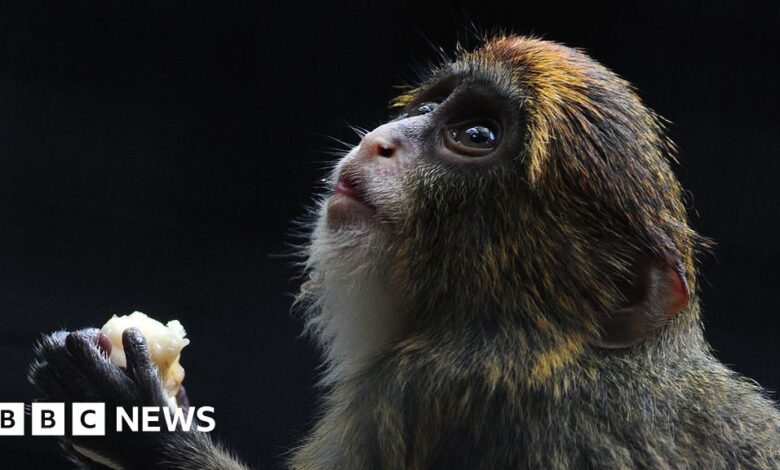12th monkey dies in Hong Kong zoo due to bacterial outbreak

A 12th monkey has died at a Hong Kong zoo, while tests are being carried out to determine whether it was infected with the same bacteria that has killed 11 other monkeys in the past 10 days.
The De Brazza monkey has been isolated since October 13 when the first eight deaths were reported.
Authorities said an autopsy found large amounts of sepsis-causing bacteria that likely came from contaminated soil near the primate’s habitat.
Hong Kong’s Minister for Culture, Sports and Tourism told local broadcaster RTHK that workers digging near the cages were believed to have carried contaminated soil through their shoes.
Dirk Pfeiffer, a veterinary epidemiologist at the City University of Hong Kong, said the risk of infection to humans is “quite low”.
He added that soil contamination is often underreported in Asia but “it would be worrying if more sudden deaths occurred in captive animal populations, where this has not been has happened before.”
The 11 monkeys previously discovered dead included the critically endangered cotton monkey, as well as white-faced monkeys, common squirrel monkeys and De Brazza monkeys.
Authorities said they died from melioidosis, an infectious disease that can be spread through contact with contaminated soil, air or water.
This disease is caused by Burkholderia pseudomallei, a soil-dwelling bacterium endemic to tropical and subtropical regions.
Officials said a 12th monkey died on Tuesday and initial results showed it also had “similar lesions… in the tissues of its organs”.
While authorities said the health of the remaining 78 mammals in the zoo is “normal”, the mammal area has been closed since October 14 for disinfection and cleaning.
The Hong Kong Zoological and Botanical Gardens is the city’s oldest park and is centrally located, spread over 14 acres.
Animal rights group Peta said it was concerned about the risk of zoonotic diseases such as chickenpox, which can be transmitted from animals to humans.
Abigail Forsyth, Peta’s campaign manager, told the BBC: “The only way to ensure the physical and mental health of animals, while also preventing further deaths and the spread of zoonotic diseases to humans is to stop imprisoning them for ‘entertainment’ and instead focus on protecting their natural habitat.” .
The earliest report of melioidosis in Hong Kong dates to the mid-1970s, when 24 dolphins suddenly died from the disease at Ocean Park, an amusement park.




